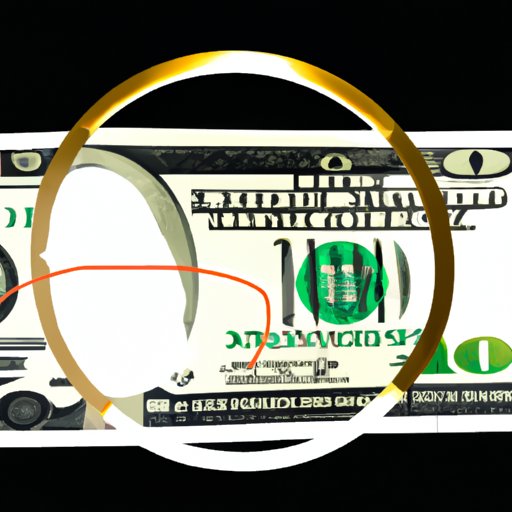
Introduction
Bank account seizures occur when a financial institution takes money from a customer’s account without permission. This practice is not uncommon, and it can have a devastating impact on customers. Therefore, it is essential to understand what bank account seizures are and how they work to protect your hard-earned money.
Legal Basis for Bank Account Seizures
There are a few different legal circumstances that can allow banks to seize a customer’s money. One of the most common reasons is when an account holder owes a debt that they have not paid in full. Under these circumstances, banks have the legal right to take funds from the account to cover the outstanding debt.
Banks can also seize funds if they suspect fraudulent activity. For instance, if they think you are using your account to commit money laundering, they can freeze or seize your account. By law, banks are required to verify their customers’ identities and report suspicious activity.
It is worth noting that laws and regulations govern bank account seizures. For instance, the government has passed laws such as the Electronic Fund Transfer Act and the Bank Secrecy Act, which details how financial institutions should handle such situations.
In some cases, banks may seize a customer’s funds mistakenly. For instance, there have been cases where banks have seized funds from the wrong account holder. Such cases highlight the importance of understanding the legal framework surrounding bank account seizures.
Tips for Protecting Your Funds in a Bank
Now that you know that banks can take your money, it’s essential to take measures to protect your funds. Here are some tips to keep in mind:
Choosing reputable financial institutions
One way to safeguard your funds is by choosing reputable financial institutions. Look for banks that have a solid reputation and have been around for a while. Such banks are more likely to adhere to standard banking practices and have the necessary infrastructure and expertise to protect your funds.
Safeguarding online accounts and personal information
Since many bank account seizures occur online, it’s crucial to safeguard your online accounts and personal information. Make sure you set up strong passwords and avoid using similar passwords across multiple accounts. Be sure to monitor your accounts regularly and report any suspicious activity promptly.
Monitoring account activity proactively
Make it a habit to monitor your account activity regularly. If you spot anything suspicious or unusual, contact your bank immediately. Timely intervention can prevent banks from seizing your funds mistakenly.
Educating oneself and being aware of potential scams
It is always essential to be informed. Therefore, take time to educate yourself about bank account seizures, read up on standard banking practices, and be aware of potential scams. This awareness can help you avoid getting into situations where banks can seize your funds.
Recent Cases of Bank Account Seizures
Bank account seizures are not new. Over the years, many banks have seized customer funds under different circumstances. For instance, some banks have seized funds from customers who owe child support, property taxes, or student loans.
A recent case that made news headlines involved Wells Fargo seizing a customer’s funds to cover a check that had bounced. The customer argued that the bank had overcharged them, and the case went to court. The verdict was in favor of the customer.
Such cases highlight the potential risks of relying solely on banks for financial security. Therefore, it is essential to take proactive steps to protect your funds.
Ethical Implications of Bank Account Seizures
Bank account seizures raise ethical concerns. In many cases, banks prioritize their own interests over those of customers. Although banks have legal rights to seize funds in some circumstances, criticism arises when banks seize funds without warning, impose excessive charges and interest rates, or act negligently.
Furthermore, bank account seizures can have a devastating impact on customers, especially those on low incomes who rely on their accounts for daily living expenses.
It’s worth noting that there are many variables at play when banks seize customer funds. Therefore, it’s essential to consider the impacts on both the customers and the bank itself.
Steps for Recovering Seized Funds
If a bank has seized your funds, there are steps you can take to recover them. Here’s what you need to do:
A clear step-by-step guide to navigating the legal process
The first step is to seek legal advice on how to navigate the process of recovering your seized funds. Legal experts can guide you on the necessary steps to take and provide helpful tips on how to go about the recovery process.
An explanation of the various legal tools such as court orders and related documents required to demonstrate ownership of funds
Make sure you have all the necessary legal documents to demonstrate that the funds in question are yours. This may include court orders, account statements, and proof of identity.
Contact points users can utilize to get the support, advice, and assistance required
If you are having trouble recovering your seized funds, there are organizations that can offer support and assistance. For instance, financial ombudsmen, customer advocates, and legal aid organizations can offer guidance and advice on how to navigate the process.
Conclusion
Can banks take your money? Yes, they can. But you can take measures to protect your funds. Choose reputable financial institutions, safeguard your personal information, monitor account activity, and educate yourself about standard banking practices.
Relying solely on banks for financial security may have devastating consequences. Therefore, it is crucial to take proactive steps to avoid bank account seizures.
Finally, if you ever find yourself in a situation where your funds have been seized, seek legal advice and follow the necessary steps to recover your funds. Remember, the law is on your side.




